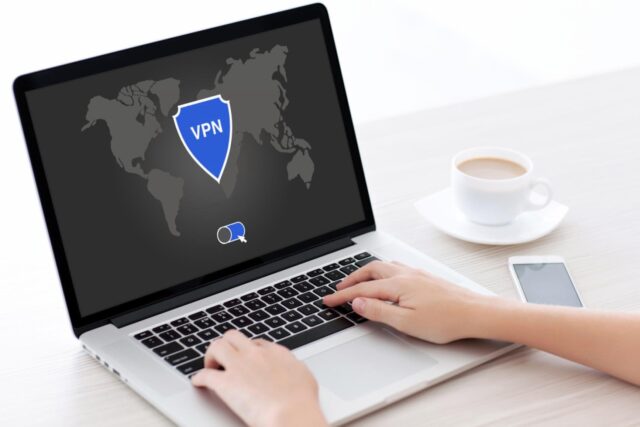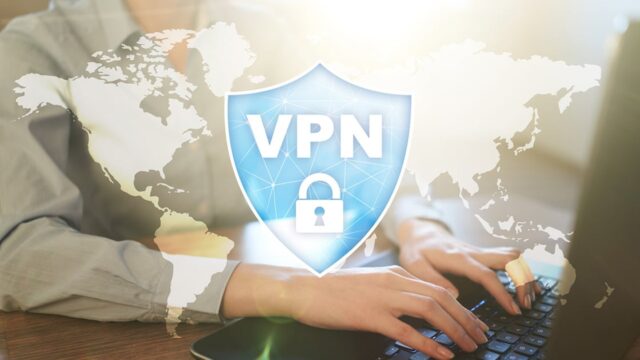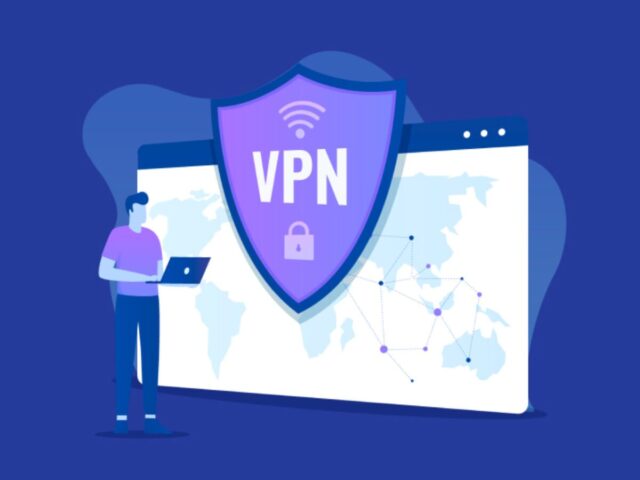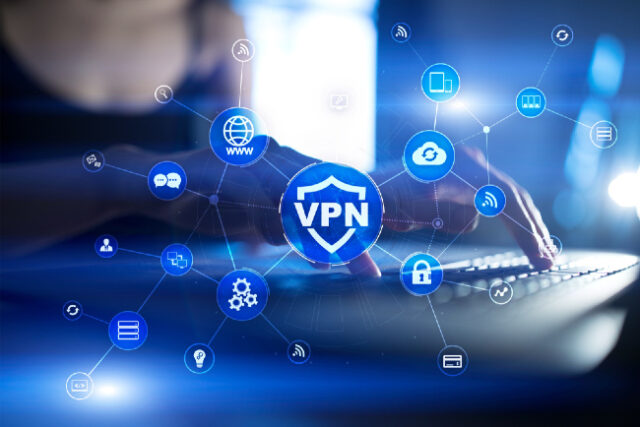In our ever-connected world, the importance of securing one’s digital footprint cannot be overstated. As we browse the web, make online purchases, and interact on social media, we leave behind a trail of personal data that can be tracked, collected, and potentially misused. One popular tool for enhancing online security and privacy is the Virtual Private Network (VPN), which encrypts internet traffic and masks users’ IP addresses.
Despite their numerous benefits, there are situations when using a VPN may not be advisable. This article delves into the intricacies of VPN use, offering insights into when to use them and when to refrain.
Digital Footprint

Every online activity leaves behind a digital footprint. This footprint includes metadata, browsing history, and other personal information that can be harvested by advertisers, hackers, and other third parties. The key to ensuring online privacy and security lies in understanding and managing this digital footprint effectively. A VPN service will help you to stay safe online.
Benefits of VPNs
Enhanced Privacy and Anonymity
VPNs are crucial tools for enhancing online privacy. They encrypt users’ internet traffic and route it through servers in different locations, making it difficult for third parties to track online activities or determine users’ physical locations. This enhanced privacy is invaluable, especially when using public Wi-Fi networks, which are often unsecured and susceptible to data breaches.
Access to Geo-Restricted Content
Another advantage of using VPNs is the ability to bypass geographical content restrictions. By connecting to a server in a different country, users can access content and services that are unavailable in their current location, such as streaming services, news websites, and social media platforms.
Enhanced Security
VPNs add an extra layer of security by encrypting internet traffic. This encryption helps protect sensitive data from cybercriminals, especially when accessing the internet from unsecured networks.
Limitations and Concerns

Despite their many advantages, VPNs have limitations and potential drawbacks.
Legal and Policy Issues
Some countries have laws and regulations that restrict or prohibit VPN use. Individuals must understand the legal landscape regarding VPNs in their country to avoid inadvertently violating laws.
Performance Decline
VPNs can sometimes lead to a reduction in internet speed and performance. The encryption and rerouting process may slow down the internet connection, affecting the user experience, especially for bandwidth-intensive activities like streaming or online gaming.
Potential Security Risks
Not all VPN providers offer robust security features. Some may have weak encryption standards or leak users’ IP addresses, compromising online security and privacy.
When to Use a VPN
Public Wi-Fi Networks
Using a VPN is highly recommended when accessing the internet on public Wi-Fi networks, as it encrypts data, protecting it from potential hackers and cybercriminals.
Browsing Privacy

For individuals concerned about their online privacy, using a VPN is a sensible choice. It helps shield online activities from third parties, including ISPs, advertisers, and government entities.
Accessing Geo-Restricted Content
A VPN is useful for accessing content unavailable in specific geographical locations, allowing users to access a wider range of information and entertainment options.
When to Refrain from Using a VPN
Engaging in Online Gaming
For online gamers, a VPN may not be the best option due to the potential for decreased network performance and increased latency.
Legal Restrictions
In countries where VPN use is restricted or prohibited, refraining from using a VPN is advisable to avoid legal complications.
Using Services that Block VPN Traffic

Some online services and websites detect and block VPN traffic. In such cases, using a VPN may lead to a subpar user experience as access to these services will be limited.
Choosing the Right VPN
Before opting for a VPN service, consider the following factors:
- Security Features: Opt for a VPN with robust security features, including strong encryption standards and a no-logs policy.
- Server Locations: Choose a VPN with a wide range of server locations for optimal performance and access to geo-restricted content.
- Performance: Select a VPN known for reliable performance and minimal impact on internet speed.
- Customer Support: Ensure the VPN provider offers excellent customer support for troubleshooting and assistance.
Further Considerations

When examining the use of VPNs, users should not only consider their immediate needs but also take into account long-term objectives and potential future scenarios. Given the escalating rates of cybercrime and the growing complexities of digital communication, the decision to use a VPN should not be taken lightly.
VPN Protocols
Understanding the different VPN protocols is another crucial aspect. Various protocols provide different levels of security and speed:
- OpenVPN: This protocol is highly secure and offers excellent performance, making it a popular choice for many VPN users.
- L2TP/IPsec: Another secure protocol, though it can be slower than OpenVPN.
- PPTP: While fast, this protocol is not the most secure option and is generally advised against for users who prioritize security.
- WireGuard: A newer protocol, WireGuard is designed for better speed and security.
Users should opt for a VPN provider that offers multiple protocols, allowing them to choose the one that best fits their needs and situations.
Balancing Security and Performance
Balancing security and performance is also essential when using a VPN. Users need to select a VPN that does not excessively compromise internet speed while ensuring robust security features to protect their digital footprint.
VPN Policies
Pay careful attention to the VPN provider’s policies, especially regarding logging user data. Opt for a service that adheres to a strict no-logs policy, ensuring that no user data is stored or shared with third parties.
Responsible VPN Use
Avoid Free VPN Services

Free VPN services can be tempting, but they often come with significant downsides, including weak security features, limited server options, and slow performance. Furthermore, some free VPN providers have been found to log user data and sell it to third parties, negating the privacy benefits of using a VPN.
Stay Informed About Legal Implications
Regularly update yourself about the legal landscape related to VPN use in your country and the countries you visit. Adhering to laws and regulations is crucial to avoid legal complications.
Regularly Update VPN Software
Ensure that your VPN software is regularly updated to the latest version to benefit from enhanced security features and performance improvements. Outdated software may have vulnerabilities that can be exploited by cybercriminals.
Conclusion
Securing one’s digital footprint is paramount in today’s digital age. VPNs play a crucial role in enhancing online security and privacy by encrypting internet traffic and masking IP addresses. However, understanding when to use a VPN and when to refrain is crucial. Weigh the benefits and limitations, consider the legal landscape, and assess individual needs and scenarios to make an informed decision on VPN use.
Embracing responsible and informed practices can significantly bolster online security and privacy, safeguarding users from potential risks and threats in the digital landscape.









